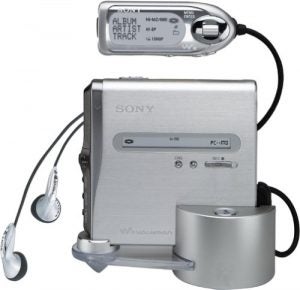Convergence Now Means Picking a Side

Yet to an extent it has always been this way and occasionally we have wished it to be so. Most notably in the 1980s it was cool to have a Sony TV hooked up to a Sony sound system, a Sony VHS player and have a Sony Walkman bulging in your coat pocket. Sony knew this and it attempted to capitalise by making proprietary connectors for everything to lock you into its ecosystem.

It went too far: BetaMax,
MiniDisc players (above), the
ATRAC music format, Memory Sticks,
Universal Media Discs (UMD) and more were rejected in search of greater
freedom. Sony forgot customer dedication to them was originally earned not enforced.
Yes, there are examples of companies playing nice. Apple still releases iTunes on Windows, Google brings apps of its core services to major platforms, Microsoft’s SmartGlass ‘second screen’ system is allegedly planned to work on rival products and talk of Microsoft Office on Android and iOS continues to gather steam. The trouble is there are far more examples of companies playing nasty. In just the last few months Apple proclaimed iOS6 will exclude Google Maps while HTC (‘Connect’) and Samsung (‘SwipeIt’) have made rival AirPlay standards both of which will only work with their own products. Furthermore an industry dogged by endless multi-million pound lawsuits has started its biggest one to date because no-one wants to open up and license or share.

So what is to be done? Personally I would like to see new industry-wide codes of practice. Here are three suggestions:
- Apps bought on one platform do not need to be bought on another
- All connectivity, whether a port or wireless standard, must be made available for license
- All user data and back-ups must be interoperable between rival platforms
The point is make it easier to switch ecosystems. The appeal of any
particular ecosystem will remain, but it will be based on quality not
existing customer investment.
Time was you bought the computer you wanted, the phone you wanted, the
TV you wanted. That era seems to have passed and convergence is largely to blame. Yes convergence brings many benefits and yes it is the future, but
right now the feeling it creates is of constriction, of dwindling options, of locked-in choices and that horrible feeling that you can’t make a purchase without picking a side…


